Research and Policy Media Relations Manager
Gavin draws on more than 25 years of experience in communicating about science, medicine and health policy. She focuses mainly on the health services research done by members of the U-M Institute for Healthcare Policy and Innovation, who work to understand and improve the safety, quality, equity and affordability of health care. As part of the Michigan Medicine communication team, she has lead responsibility for primary care and mental health topics. Contact: [email protected]; Twitter: @Karag

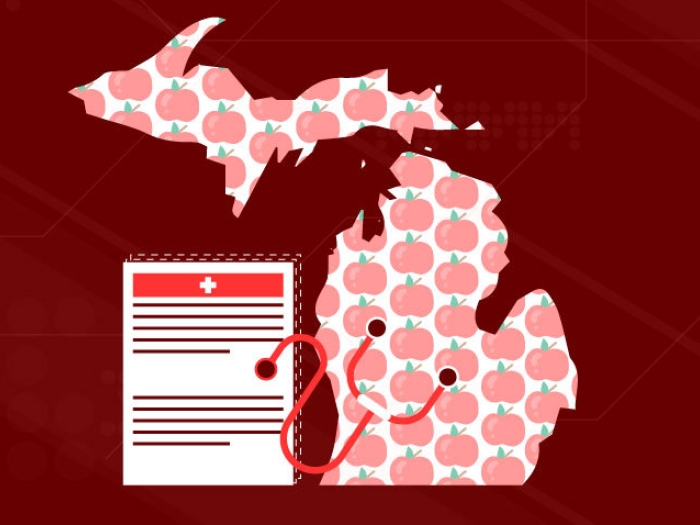
Health Lab
Medicaid expansion in Michigan emphasized primary care and prevention, and based financial incentives for enrollees on examining health risks and engaging in healthy behaviors. Two new studies look at the results.

Health Lab
Major political events including the 2016 election and 2017 inauguration affected the moods of medical interns, while other major events in the same years did not, signaling a politically aware generation of young physicians.
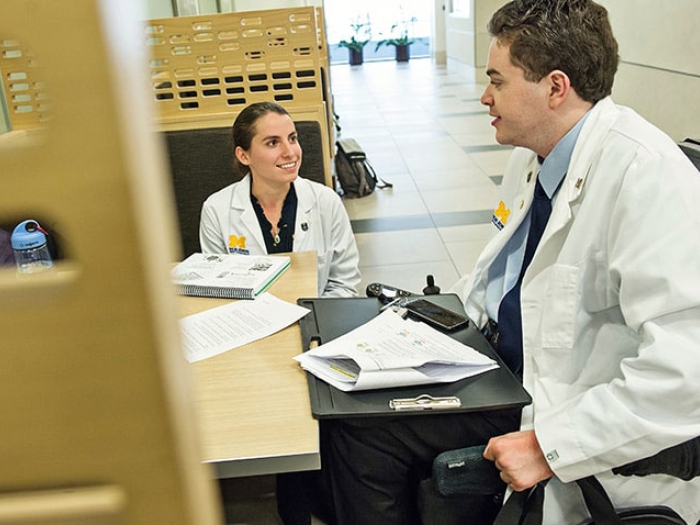
Health Lab
Disability disclosures by medical students to medical schools have increased, as have accommodations for conditions ranging from attention ones like deficit disorder and depression to hearing impairment.
News Release
The University of Michigan led the nation with 22 faculty members -- 14 of them affiliated with the U-M Medical School -- elected as 2019 fellows of the American Association for the Advancement of Science.

Health Lab
Nearly half of older Americans think they may develop dementia, but few have asked their doctor about it.
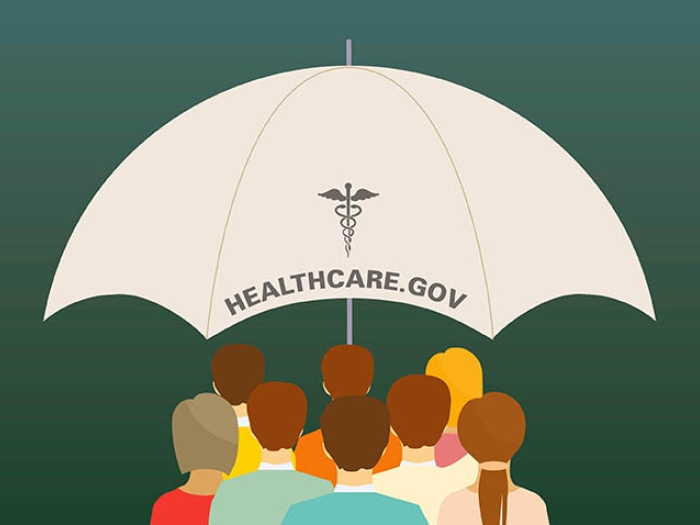
Health Lab
Open enrollment tips for buying health insurance through the Obamacare marketplace on healthcare.gov.
News Release
No matter where in Michigan they are, people in pain will soon have a chance to get effective care with less risk of opioid-related problems, thanks to a new website launched by the CDC-funded University of Michigan Injury Prevention Center and the state Department of Health and Human Services.
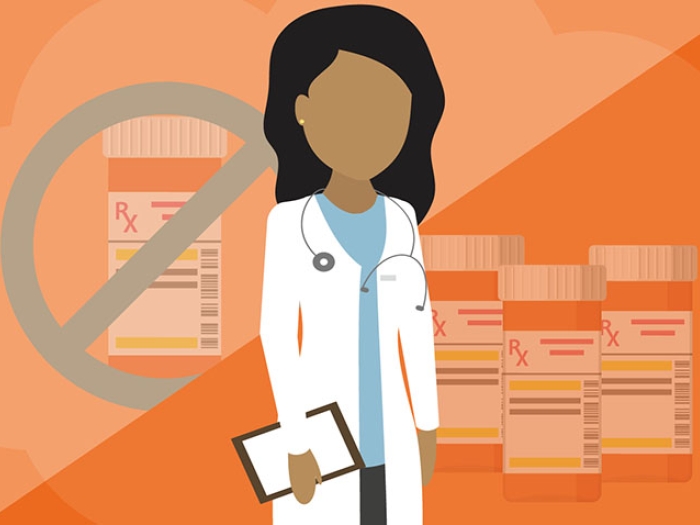
Health Lab
A new Healthy Aging Poll finds many older adults say they take leftover antibiotics without physician guidance, despite awareness of antibiotic resistance risks.
News Release
Even if they never write a single prescription for an opioid painkiller, or care for someone who has overdosed on heroin or fentanyl, people who work in every area of American healthcare need to understand how the opioid epidemic is affecting their patients, their families and their communities, and how to prevent new cases of opioid addiction.
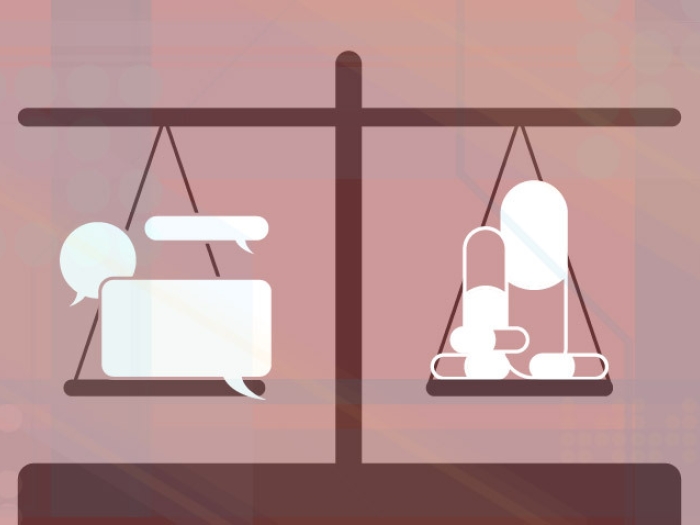
Health Lab
Treating newly diagnosed depression patients with antidepressants or cognitive behavioral therapy, or “talk therapy”, is roughly equal in cost and benefit when measured over the long term of five years.
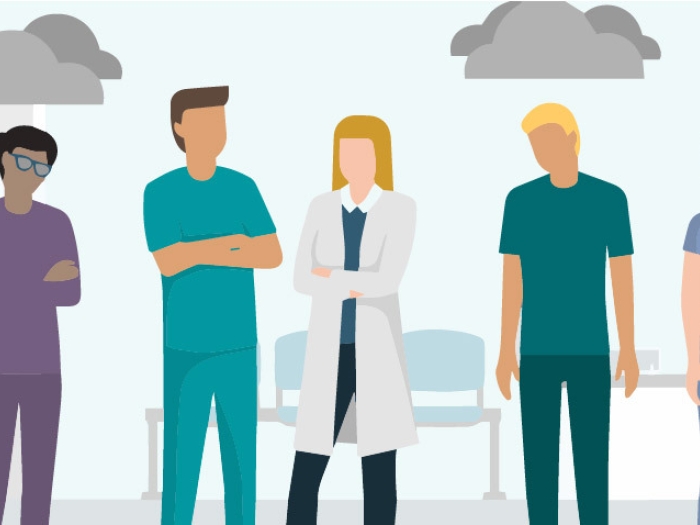
Health Lab
Medical residents called interns serve as a test population to show the promise of a predictive genetics tool called a polygenic risk score in depression risk and resilience.
News Release
People across Michigan can dispose of unneeded medications this Saturday at more than 80 locations across 46 Michigan counties and in northern Indiana that have partnered with a U-M team that's working to fight a national epidemic prescription drug misuse and abuse, and reduce the risk of accidental poisoning and overdose.
News Release
Three University of Michigan professors are among 100 U.S. and international researchers elected today to the National Academy of Medicine. Rebecca Cunningham, M.D., James Dalton, Ph.D., and Gabriel Nuñez, M.D. join 53 other current and emeritus U-M faculty, and living former faculty, in the prestigious society.
News Release
Now, thanks to a new $10 million gift from Tadataka Yamada, M.D. and Leslie D. Yamada, those teams will have new resources to think even bigger, work together and with global partners more effectively, and make a greater positive impact on the health and health care of people with the greatest need worldwide.

Health Lab
A new Michigan Medicine study found that overdose prevention should include a focus on alcohol overdoses.